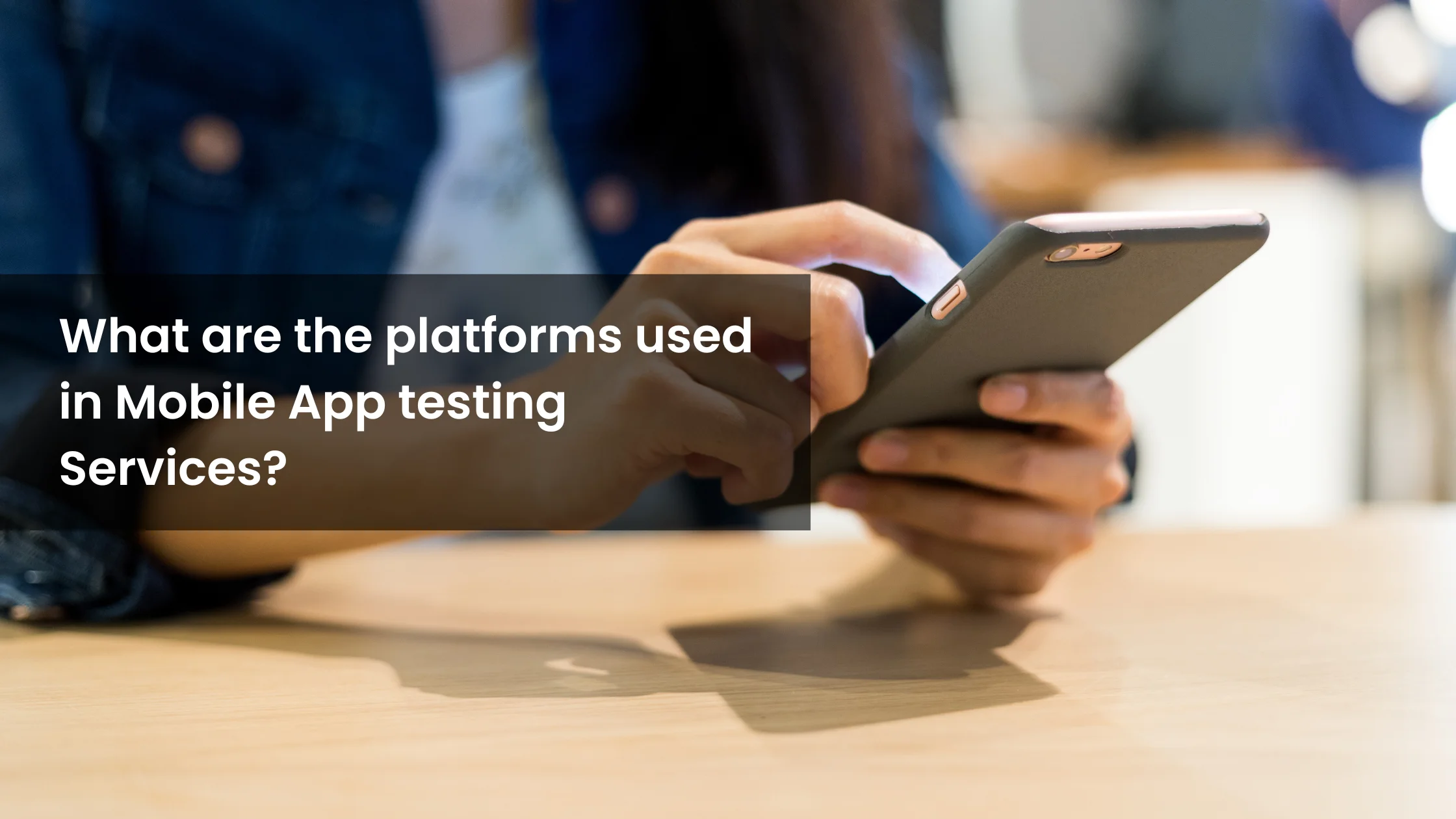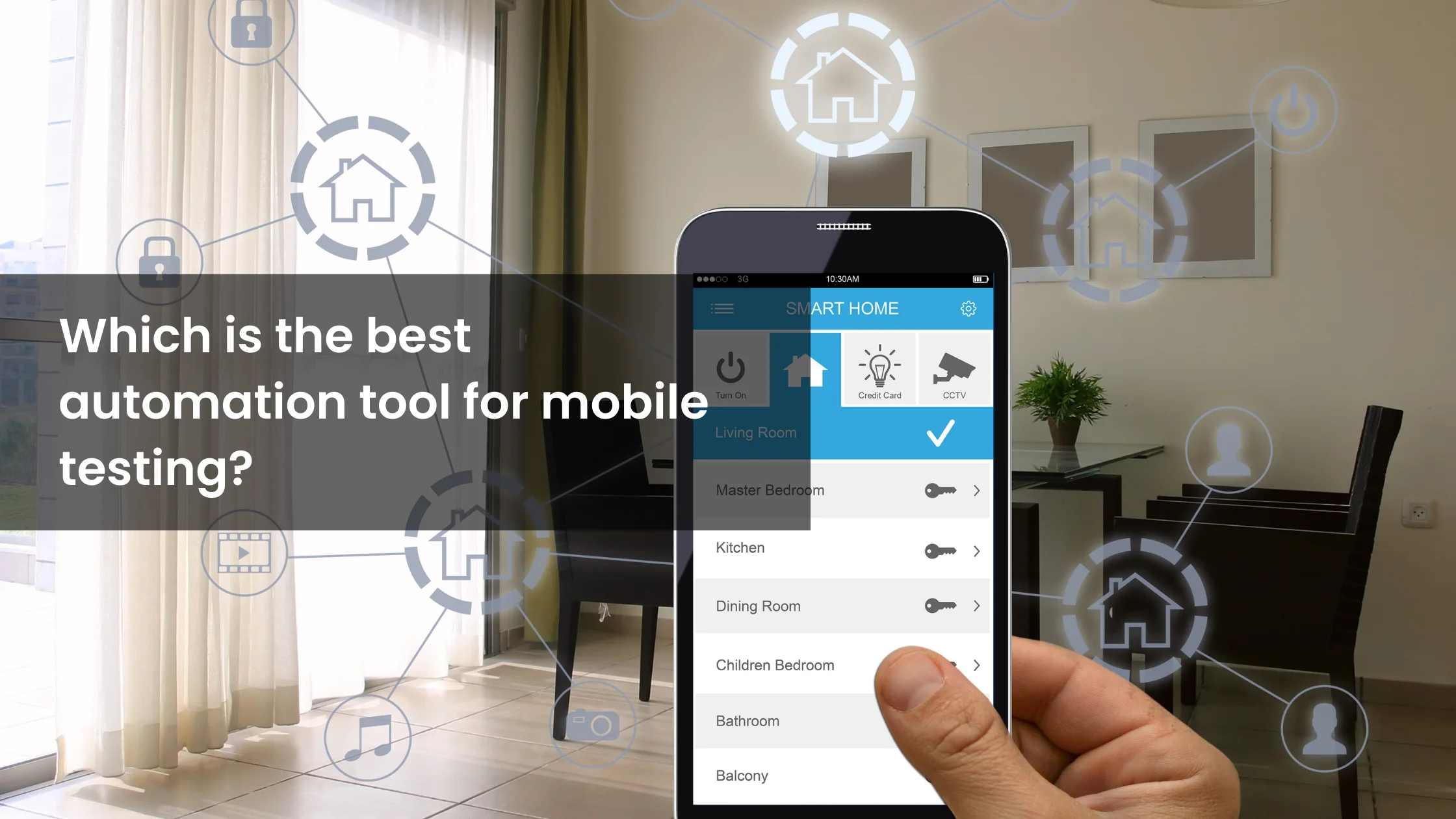 Hello there, fellow app enthusiast! So, you've developed a killer mobile app. It's sleek, it's functional, and you can't wait to unleash it upon the world. But wait—before you do that, there's a little thing called mobile app testing that you need to consider. Testing ensures your app runs smoothly across all devices and platforms, saving you from the embarrassment of crashes and bugs. In this post, we'll walk you through the main platforms used in mobile app testing services, with a sprinkle of humour and a dash of technical insight.
Hello there, fellow app enthusiast! So, you've developed a killer mobile app. It's sleek, it's functional, and you can't wait to unleash it upon the world. But wait—before you do that, there's a little thing called mobile app testing that you need to consider. Testing ensures your app runs smoothly across all devices and platforms, saving you from the embarrassment of crashes and bugs. In this post, we'll walk you through the main platforms used in mobile app testing services, with a sprinkle of humour and a dash of technical insight.
Android Testing: The Wild West of Devices
Android, oh Android! With its multitude of devices and versions, testing an Android app can feel like herding cats. But fear not! There are excellent tools out there to help you tame this Wild West:
Espresso: Google's own testing framework, Espresso, is designed to be fast and reliable. It helps you write concise and readable UI tests, making sure your app performs well on various Android versions.
Robotium: Think of Robotium as the Swiss Army knife for Android testing. It’s a robust tool that allows you to write powerful and flexible tests, making it easier to automate black-box tests.
Want to dive deeper into mobile app testing? Check out our comprehensive Mobile Application Testing Services.
iOS Testing: The Cult of Consistency
Ah, iOS. The land of uniformity. Testing for iOS might seem straightforward thanks to the limited number of devices compared to Android, but it has its own set of challenges:
XCTest: Apple's very own testing framework. If you're an iOS developer, this is your go-to tool for unit tests, performance tests, and UI tests. It's deeply integrated into Xcode, making it a seamless choice.
Appium: Appium is the darling of cross-platform testers. It supports both iOS and Android, allowing you to reuse your code across multiple platforms. If you like the idea of "write once, test everywhere," Appium is your friend.
Curious about our other testing services? Have a look at our Automation Testing Services.
Cross-Platform Testing: The Best of Both Worlds
For those who want their cake and eat it too, cross-platform testing frameworks are a blessing. These tools help you test your app on both Android and iOS without rewriting your tests from scratch:
Flutter: Google’s open-source UI software development kit (SDK) for crafting natively compiled applications for mobile. Testing in Flutter is a breeze with its comprehensive set of testing features, including unit, widget, and integration tests.
React Native Testing Library: This library makes it easy to test React Native components, ensuring your app’s UI behaves as expected across different devices.
Still, wondering if manual testing has a place in this automated world? Find out more about our Manual Testing services.
Wrapping It Up
So there you have it—an overview of the main platforms used in mobile app testing services. Whether you're battling the Android device jungle, enjoying the uniformity of iOS, or aiming for cross-platform supremacy, there's a tool out there to help you ensure your app is flawless. Remember, a well-tested app is a happy app, and a happy app means happy users!
 Hey there, fellow tester! Ever found yourself lost in the maze of test automation tools, wondering if your trusty UFT/QTP can handle mobile test automation? You're not alone! It's like trying to figure out if your old Walkman can stream Spotify – intriguing, but slightly baffling.
Hey there, fellow tester! Ever found yourself lost in the maze of test automation tools, wondering if your trusty UFT/QTP can handle mobile test automation? You're not alone! It's like trying to figure out if your old Walkman can stream Spotify – intriguing, but slightly baffling. Hey there, app developer extraordinaire! Ready to dive into the world of mobile app testing and find out which companies are ruling the roost? We know, you’ve poured your heart, soul, and countless cups of coffee into your mobile app. Now, it's time to make sure it’s flawless before it hits the app stores. But with so many testing companies out there, how do you choose the best one? Let’s break it down and make this journey a bit more fun!
Hey there, app developer extraordinaire! Ready to dive into the world of mobile app testing and find out which companies are ruling the roost? We know, you’ve poured your heart, soul, and countless cups of coffee into your mobile app. Now, it's time to make sure it’s flawless before it hits the app stores. But with so many testing companies out there, how do you choose the best one? Let’s break it down and make this journey a bit more fun! Hey there, tech enthusiasts and aspiring testers! So, you're eager to dive into the world of mobile testing, huh? Maybe you've just unboxed the latest smartphone, or perhaps you've been dreaming about making mobile apps flawless for millions of users worldwide. Either way, you're in the right place. Today, we're going to chat about the best website to learn mobile testing online.
Hey there, tech enthusiasts and aspiring testers! So, you're eager to dive into the world of mobile testing, huh? Maybe you've just unboxed the latest smartphone, or perhaps you've been dreaming about making mobile apps flawless for millions of users worldwide. Either way, you're in the right place. Today, we're going to chat about the best website to learn mobile testing online. Hello there, tech enthusiast! So, you're diving into the world of software testing, huh? Excellent choice! But let’s be real, it can be a bit overwhelming at times, right? Especially when it comes to automation testing tools. Don't worry, we’ve got your back. In this post, we’ll walk you through some of the easiest automation software testing tools that even your grandma could master (well, if she’s tech-savvy).
Hello there, tech enthusiast! So, you're diving into the world of software testing, huh? Excellent choice! But let’s be real, it can be a bit overwhelming at times, right? Especially when it comes to automation testing tools. Don't worry, we’ve got your back. In this post, we’ll walk you through some of the easiest automation software testing tools that even your grandma could master (well, if she’s tech-savvy). Hey there, tech enthusiast! Ever wondered why your favorite mobile apps run smoothly without a hitch? Let's dive into the fascinating world of mobile application testing. Picture this: your app is a suave secret agent, and mobile app testing is the rigorous training it undergoes before embarking on its mission. Intrigued? You should be!
Hey there, tech enthusiast! Ever wondered why your favorite mobile apps run smoothly without a hitch? Let's dive into the fascinating world of mobile application testing. Picture this: your app is a suave secret agent, and mobile app testing is the rigorous training it undergoes before embarking on its mission. Intrigued? You should be! If you've ever wondered about the future of mobile application testing, especially with our beloved Appium, buckle up. We're about to take a thrilling ride into the future, where testing is as smooth as a swipe on your smartphone.
If you've ever wondered about the future of mobile application testing, especially with our beloved Appium, buckle up. We're about to take a thrilling ride into the future, where testing is as smooth as a swipe on your smartphone. So, you're about to launch your killer mobile app, huh? Congratulations! But wait, before you pop that champagne, let’s talk about something crucial: mobile app testing. You see, behind every successful app is a team of diligent testers using a suite of tools to ensure it works perfectly. Let's dive into the world of mobile app testing and discover how many tools are really involved.
So, you're about to launch your killer mobile app, huh? Congratulations! But wait, before you pop that champagne, let’s talk about something crucial: mobile app testing. You see, behind every successful app is a team of diligent testers using a suite of tools to ensure it works perfectly. Let's dive into the world of mobile app testing and discover how many tools are really involved. So, you've just finished creating your shiny new mobile app. Congratulations! Now comes the fun part—testing. It’s like making sure your superhero costume is ready before stepping out to save the world. But what kind of testing does your mobile app need to ensure it’s robust, user-friendly, and ready to conquer the app stores? Let’s dive in and find out!
So, you've just finished creating your shiny new mobile app. Congratulations! Now comes the fun part—testing. It’s like making sure your superhero costume is ready before stepping out to save the world. But what kind of testing does your mobile app need to ensure it’s robust, user-friendly, and ready to conquer the app stores? Let’s dive in and find out! Let’s talk about mobile testing. In a world where our phones are practically an extension of ourselves, ensuring that mobile apps work flawlessly is more crucial than ever. So, you’re probably wondering, “Which is the best automation tool for mobile testing?” Well, buckle up, because we’re about to take a fun ride through the world of mobile testing tools!
Let’s talk about mobile testing. In a world where our phones are practically an extension of ourselves, ensuring that mobile apps work flawlessly is more crucial than ever. So, you’re probably wondering, “Which is the best automation tool for mobile testing?” Well, buckle up, because we’re about to take a fun ride through the world of mobile testing tools!